Selina Cooper
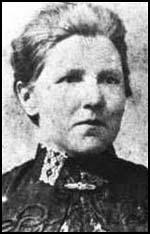
Selina Cooper, the daughter of Charles Coombe and Jane Coombe, was born in Callington on 4th December 1864. Selina's father was a navvy and was away working on a construction job when he died of typhoid fever. Jane, her two youngest children and her seventy-four year old mother were all left destitute by Charles Cooper's death. There was little work in Cornwall so Jane decided to follow the example of two eldest sons, Richard and Charles, and seek work in the textile mills of northern England.
Jane Coombe, and her two youngest children, Selina and Alfred, settled in Barnoldswick in 1876. Selina and Alfred soon found work in the local textile mill. Selina, who was now twelve years old, spent half the day in the factory and the other half at school. She was employed as a "creeler" and it was her responsibility to make sure there was a constant supply of fresh bobbins for the cotton emerging from the card frames. When Selina reached the age of thirteen she was able to leave school and work full-time in the Barnoldswick Mill. Selina received eight shillings for a fifty-six hour week, and this enabled the family to move out of temporary accommodation and rent a small house close to the mill.
Jane's rheumatism continued to get worse and soon after arriving in Barnoldswick she was restricted to staying at home. Jane Coombe carried on taking in work as a dressmaker but by 1882 her rheumatism became so bad that she could no longer walk. Selina now had to leave Barnoldswick to look after her bed-ridden mother. Luckily, Jane retained the use of her hands and so with a small sewing machined fixed to a board, she still able to make the clothes that were so highly valued in the neighbourhood. To raise extra money Selina took in washing.
When Jane Coombe died in 1889, Selina was able to return to work in the factory. Selina joined the Nelson branch of the Cotton Worker's Union. Although the vast majority of members were women, the union was run by men. Selina thought that was unfair as it influenced the issues that the union became involved in. Selina for example, objected to the system of providing toilets without doors. In 1891 Selina became involved in a trade union dispute where attempts were made to force employers to provide decent toilet facilities. Selina also objected to the way that male overlookers treated young women workers in factory. However, the male leadership of the union showed little interest in these complaints about sexual harassment.
As well as her union activities, Selina also began attending education classes organised by the Women's Co-operative Guild in Nelson. By 1889 the General Secretary of the Guild was Margaret Llewelyn Davies, who had recently completed her university studies at Girton College, that had been founded by her aunt, Emily Davies, in 1869.
One of the main objectives of the Women's Co-operative Guild was to encourage women to "discuss matters beyond the narrow confines of their domestic lives." Selina also began reading books about history and was gradually building up her knowledge of politics. She also starting buying medical books so that she would be able to advise fellow workers who were unable to afford a visit to the doctors. Her collection included The Law of Population, a book written by Annie Besant on birth-control.
In 1892 the Independent Labour Party (ILP) was formed in Nelson. Selina was attracted to the party's claims that it supported equal rights for women. It was at the local ILP that Selina met Robert Cooper, a local weaver who was a committed socialist and advocate of women's suffrage. Cooper had previously worked for the Post Office but had been sacked for his trade union activities.
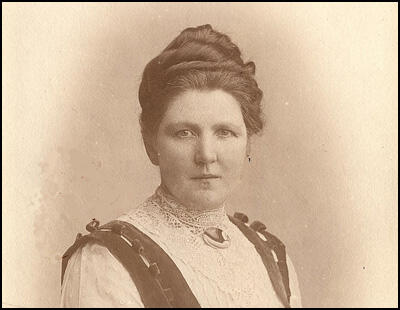
Selina married Robert Cooper in 1896 and despite giving birth to a couple of children in the first three years of marriage, she continued her involvement in politics. Selina's first child, John Ruskin, who was named after the writer who had most influenced her political ideas, died of bronchitis when he was four months old.
In 1900 Selina Cooper joined the North of England Society for Women's Suffrage. Other members at the time included Esther Roper, Eva Gore-Booth, Emmeline Pankhurst and Christabel Pankhurst. Cooper wrote at the time: "(a) That in the opinion of your petitioners the continued denial of the franchise to women is unjust and inexpedient. (b) In the home, their position is lowered by such an exclusion from the responsibilities of national life. (c) In the factory, their unrepresented condition places the regulation of their work in the hands of men who are often their rivals as well as their fellow workers."
Selina helped organize a petition that was signed by women working in the Lancashire cotton mills. Selina alone collected the signatures of 800 women from local textile factories. By spring 1901, 29,359 women from Lancashire had signed the petition in favour of women's suffrage and Selina was chosen as one of the delegates to present the petition to the House of Commons.
In 1901 the Independent Labour Party asked Selina to stand as a candidate for the forthcoming Poor Law Guardian elections. Although women had been allowed to stand as candidates since the passing of the Municipal Franchise Act in 1869, no working-class woman had ever been elected to one of these bodies. Although the local newspapers campaigned against Selina Cooper, she was elected.
Selina was outvoted on most issues but she did persuade the Board of Guardians to allow elderly people in the workhouse more freedom of movement. Although her duties as a Guardian took up a lot of her time, Selina continued to campaign for women's suffrage. At the National Conference of the Labour Party in 1905, Selina made a speech where she urged the leadership to fully support women's suffrage. The following year she helped form the Nelson and District Suffrage Society. Minister.
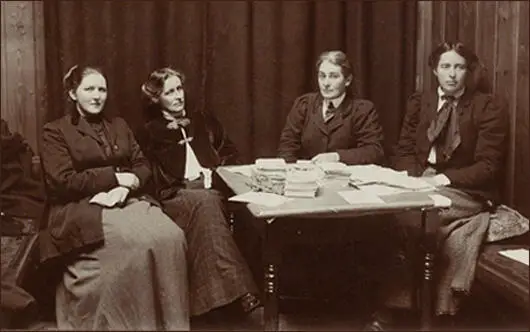
Selina developed a national reputation for her passionate speeches in favour of women's rights. Millicent Fawcett was a great admirer of Selina Cooper and she was often asked to speak at NUWSS rallies. In 1910 she was chosen to be one of the four women to present the case for women's suffrage to Herbert Asquith, the British Prime Minister.
In 1911 Selina Cooper and Ada Nield Chew became organizers for the NUWSS. According to Elizabeth Crawford, the author of The Suffragette Movement (1999): "She spent the next years travelling around the country; in 1908, for instance, she took part in at least eight by-elections. When she was away from home the NUWSS paid the expense of a housekeeper to care for her daughter, who had been born in 1900."
Cooper influenced the NUWSS decision in April 1912 to support Labour Party candidates in parliamentary by-elections. Emily Davies, a member of the Conservative Party, and Margery Corbett-Ashby, an active supporter of the Liberal Party, resigned from the NUWSS over this decision. However, others like Catherine Osler, resigned from the Women's Liberal Federation in protest against the government's attitude to the suffrage question.
The NUWSS established an Election Fighting Fund (EFF) to support these Labour candidates. The EFF Committee, which administered the fund, included Margaret Ashton, Henry N. Brailsford, Kathleen Courtney, Muriel de la Warr, Millicent Fawcett, Catherine Marshall, Isabella Ford, Laurence Housman, Margory Lees and Ethel Annakin Snowden.
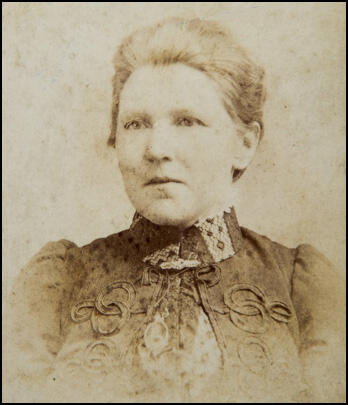
In August 1913 Selina Cooper wrote in The Common Cause: "One reason why I am a convinced suffragist is that the mothers (even as wage earners) take the greater share of the responsibility in the upbringing of their children; therefore, they ought to have the greater means, not the less, to enable them to do justice to the rising generation."
During the First World War Selina worked on several committees organizing relief work in Nelson. This included Nelson's first ever Maternity Centre. Selina took great pleasure in the fact that she personally helped to deliver fifteen babies during this period.
Although willing to help people suffering from the consequences of the war, Selina, who was a pacifist, refused to take part in army recruiting campaigns. Selina was totally opposed to military conscription and after its introduction in 1916, became involved in helping those men who were sent to prison for refusing to fight. In 1917 Selina persuaded over a thousand women in Nelson to take part in a Women's Peace Crusade procession. The meeting ended in a riot and mounted police had to be called in to protect Selina Cooper and Margaret Bondfield, the two main speakers at the meeting.
After the passing of the Qualification of Women Act in 1918 the NUWSS tried to persuade the Labour Party in Nelson to choose Selina Cooper as their candidate in the forthcoming 1918 General Election. However, the Labour Party was very much a male-dominated organisation and no women were selected to fight winnable seats.
Cooper continued to be involved in local politics. She was elected to the town council and became a local magistrate. In the 1930s she played a prominent role in the campaign against fascism.
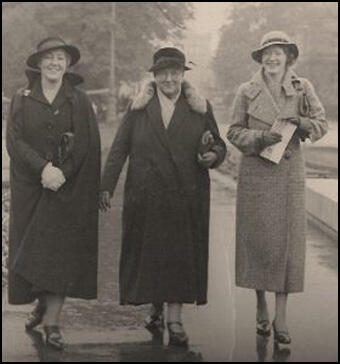
Selina Cooper died at home on 11th November 1946 shortly before her eighty-second birthday.
Primary Sources
(1) Selina Cooper's mother, Jane Coombe, suffered from rheumatism. Selina's daughter later recalled how her grandmother continued to work even though she was confined to her bed.
My grandmother had a board on the bed and a little chain machine that she could work for the long seams. You never saw such beautiful stitching in all your life… And the window overlooked the main road in Brierfield. And she'd look out - look at a costume, and sit down and cut it out on this board - she couldn't move her legs. And my mother had to lift her out of bed onto a blanket.
(2) Selina Cooper's daughter Mary was bullied for being the daughter of a woman known for her radical political opinions. She later recalled one incident that took place in 1913.
They used to pin things on my back… pinned on 'suffragette' or 'socialist. One of my teachers… Miss Moser… says, 'Who's put that on Mary? Come out here! Who's put it on?' And none of them spoke - it was a big class. 'That's done it… into the schoolmaster, and you know what sort of cane he's got.' Miss Moser was quite friendly with my mother… Miss Cliff was friendly too… They were in the suffrage movement; they used to come to our home for meetings. So they stuck up for me.
(3) Selina Cooper joined the National Union of Suffrage Societies in 1899. She later explained why she made this decision.
I carefully watched the proceedings and policy pursued by such great unions as the Miners, Cotton Spinners and Engineers, who all pressed for State interference with the object of improving their industrial conditions. I was compelled to recognize the power of Parliament… Those well-organised industries had the ballot-box as a lever to raise their standard of life, but the women workers, however well they combined, had no such lever to help them in their demand for the redressing of their grievances.
(4) In 1900 Selina Cooper and the North of England Women's Suffrage Society organised a petition that was only signed by women working in the Lancashire cotton mills. Over 29,000 women signed the following petition that was handed to Parliament on 18th March 1901.
(a) That in the opinion of your petitioners the continued denial of the franchise to women
is unjust and inexpedient. (b) In the home, their position is lowered by such an exclusion from the responsibilities of national life. (c) In the factory, their unrepresented condition places the regulation of their work in the hands of men who are often their rivals as well as their fellow workers.
(5) In August 1909, Selina Cooper invited Charlotte Despard to speak to the Nelson Suffrage Society. Her speech was reported in the Colne and Nelson Times.
The suffragettes tried to present a petition… We simply went to the House of Commons in February last to assert our citizens' rights. We did not obstruct anybody, but the police obstructed us. I was given a month's imprisonment… We went again and again and we were not arrested, which shows we have gained some ground.
(6) In August 1913, Selina Copper wrote a letter to The Common Cause explaining why she believed women should have the vote.
One reason why I am a convinced suffragist is that the mothers (even as wage earners) take the greater share of the responsibility in the upbringing of their children; therefore, they ought to have the greater means, not the less, to enable them to do justice to the rising generation.
(7) In November 1913, Selina Cooper and Margaret Aldersley went to address an open-air meeting in Howarth on the subject of women's suffrage. Selina's daughter, Mary, observed what happened.
The men threw rotten eggs and tomatoes and all sorts of things… we sheltered in a café. Mrs Aldersley went out and came back crying - covered with eggs and tomatoes… My mother went out, and she said, "I'm stopping here, whatever you throw, so go and fetch all the stuff you've got to throw, because," she says, "this blooming village would never have been known about but for three women - the Brontes."
(8) Selina Cooper built up a library of books that she made available to other women in the textile factory where they worked in the 1890s. One of her books was Dr. Allison's Book for Married Women.
Women have rights as well as men, and to force a woman to have more children than her constitution will bear, or is her desire to have, is an act of cruelty that no upright man would sanction. It is against the true dignity of a woman to become a mere childbearing drudge. From a health standpoint, it is better to use preventative means.
(9) Selina Cooper's daughter remembers how her mother gave advice to friends and neighbours on birth control.
Birth control wasn't much talked about then, but my mother used to give a talk to the women that came here to our house about it… She used to meet with a lot of opposition, because there was quite a lot of Catholics. But she used to talk about things - and elementary hygiene and elementary science and biology, and things we never got before.
(10) In March 1901, Selina Cooper became the first working-class woman to stand as a candidate to become one of Nelson's Poor Law Guardians. The local paper, The Colne and Nelson Times, told its readers not to vote for Selina Cooper.
At the risk of being described ungallant, we have to ask the electors of Nelson to see to it that the three men candidates are elected Guardians… We hold that the interests of women are not neglected by administrative bodies consisting entirely of men… The three male candidates the ratepayers can elect… have the leisure - without the domestic duties, which embarrass women.
(11) When Selina Cooper was a candidate in the Board of Guardians elections in March 1904, The Nelson Leader newspaper reported one of her speeches.
There is a feeling that women should not enter Guardian's elections. Their mission, people say, is to scrub floors; and I have had many insults to take during this fight. I shall, however, continue to devote a portion of my time to the Labour movement and at the same time do the scrubbing of floors.

